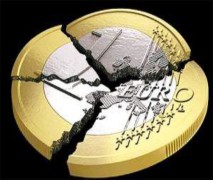Keynesianism with an expansionary twist
And why the European monetary union has failed – Lars Syll

The following commentary by Lars Syll is about the value and relevance of modern monetary theory (MMT) in explaining why and how the euro experiment has failed so badly. He begins with a quote from the Post-Keynesian economist Lance Taylor, which he thinks is only partially correct.
Quoting from Lance Taylor:
“Expansionary policy with a strong redistributive component is an attractive proposal ..Higher output and real wages will likely stimulate productivity growth. Global warming can and should be attacked seriously.
“ With regard to foundation myths for MMT, Chartalism adds little to the observation that a modern macro econ- omy operates on the basis of fiat money supported by state power which transcends enforcing the mere payment of taxes.
“Functional finance is at the heart of fiscalist Keynesianism incorporating automatic stabilizers for the business cycle. The MMT job guarantee proposal could be helpful as a supplement to the existing system of stabilizers …
“A fiscal expansion poses the risk of price inflation. It is unlikely to turn into a Wicksellian cumulative process so long as wages are repressed. But ending wage repression is presumably an MMT policy objective …
“ MMT’s aims are exemplary but their intellectual support adds little to the ideas of Godley, Lerner, and Keynes. The doctrine blends them effectively but is certainly no striking new intellectual synthesis. “
Taylor may be right on the question of how much, as a macroeconomic theory, MMT really has added to the Keynes- Lerner-Godley-Minsky framework. But there is undoubtedly at least one posit- ive contribution of MMT, especially from a European point of view, and that is that it has made it transparently clear why the euro-experiment has been such a monumental disaster. The neoliberal dream of having over-national currencies just doesn’t fit well with reality. When an economy is in a crisis, it must be possible for the state to manage and spend its own money to stabilize the economy.
When the euro was created around 20 years ago, its arrival was celebrated with fireworks at the European Central Bank headquarters in Frankfurt. Today we know better. There are no reasons to celebrate the 20-year anniversary. On the contrary.

From its beginning, the euro has been in crisis. And the crisis is far from over.
The tough austerity measures that have been imposed in the eurozone, again and again, has made economy after economy contract. And it has not only made things worse in the countries at the periphery, but also in countries like France and Germany. Alarming facts that should be taken seriously.
The problems – created largely by the euro — not only endanger all of the economies of Europe, but also all of the European democratic institutions. How much whipping can democracy take?
How many more people are going to be seriously hurt and ruined before we end this madness and scrap the euro?
The euro has taken away the possibility for national governments to manage their economies in a meaningful way — and in country after country, the people have had to pay the true costs of the concomitant misguided austerity policies.
The unfolding of the repeated economic crises in euroland during the last decade has shown beyond any doubt that the euro is not only an economic project but just as much a political one.
What the neoliberal revolution during the 1980s and 1990s didn’t manage to accomplish, the euro shall now force upon Europe’s population.
Do the peoples of Europe really want to deprive themselves of economic auton- omy, enforce lower wages and slash all social welfare whenever there is the slightest sign of economic distress? Are increasing income inequality and a federal überstate really the stuff that our dreams are made of? I doubt it.
Reference:
1. https://rwer.wordpress.com/2020/06/11/mmt-keynesianism-with-an-expansionary-twist/
Dr Lars Syll is Professor of Social Studies and Associate professor of Economic History at Malmö University College.






























